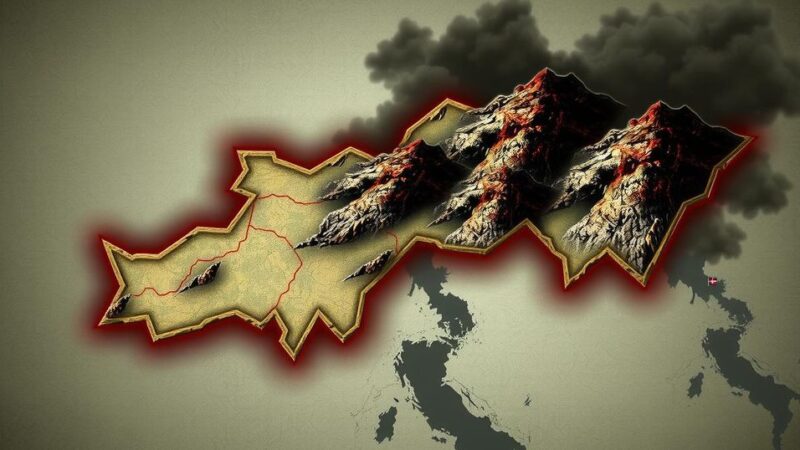Saudi Arabia is reassessing its diplomatic strategies in response to the ongoing conflicts in Gaza. Previously aiming for normalization with Israel, the kingdom is now fostering closer ties with Iran, insisting that future agreements with Israel depend on the recognition of Palestinian statehood. The recent Gulf states’ meeting with Iran illustrates a growing diplomatic engagement aimed at stabilizing a historically fraught relationship.
The geopolitical landscape in the Middle East is experiencing a significant transformation as Saudi Arabia shifts its allegiances away from Israel toward Iran amid ongoing tensions related to the Israeli-Palestinian conflict. Previously, Saudi Arabia was poised to normalize relations with Israel, a move that would have altered regional dynamics by isolating Iran and its allies. However, the recent escalation of violence in Gaza and the subsequent killing of Hamas leader Yahya Sinwar have thwarted those plans, pushing Saudi Arabia to condition any future diplomatic agreements with Israel on the latter’s recognition of Palestinian statehood. In a notable diplomatic development, this month has seen a rare meeting of the Gulf states’ foreign ministers with their Iranian counterpart, marking a cautious rapprochement aimed at reducing longstanding sectarian hostilities that have led to bloodshed in the region. Iranian Foreign Minister Abbas Araghchi has actively engaged in diplomacy, visiting Saudi Arabia and other regional countries such as Iraq and Oman, signaling a potential softening of relations. During his remarks in Istanbul, Mr. Araghchi emphasized the shared concern over the escalation of conflicts in Gaza and Lebanon, highlighting a mutual grievance among regional actors regarding the risks posed by the conflicts and the displacement of people affected by ongoing violence.
The historical animosity between Saudi Arabia and Iran has largely defined Middle Eastern politics for decades, underpinned by sectarian divides and competing geopolitical interests. Saudi Arabia, a Sunni-majority nation, traditionally views Iran’s Shiite governance as a threat to its regional influence and stability. The normalization of relations between Saudi Arabia and Israel was anticipated to significantly alter the power dynamics in the Middle East, enabling a plausible alliance against Iran. However, the recent escalations in Gaza and the broader context of regional dissent have prompted Saudi Arabia to reconsider its stance, now seeking closer ties with Iran as a countermeasure against regional instability.
In summary, the Middle Eastern geopolitical landscape is witnessing a pivotal moment characterized by Saudi Arabia’s recalibration of its foreign relations. The shift away from potential normalization with Israel and towards engagement with Iran reveals a complex interplay of regional grievances and the urgent need for stability. This emerging détente, albeit in its infancy, indicates a significant departure from historical alignments and poses new questions about future diplomatic efforts in the region.
Original Source: www.nytimes.com






